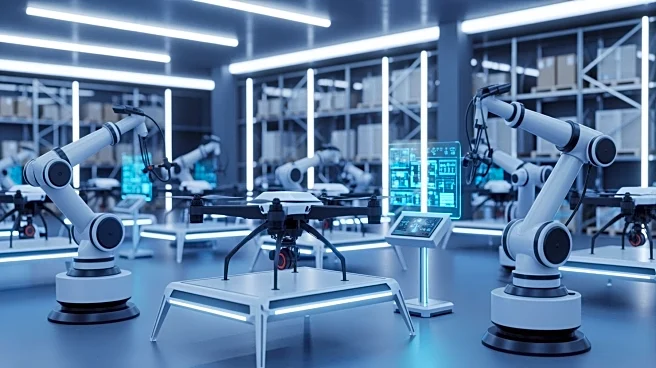What's Happening?
The concept of autonomous supply chains is gaining traction as companies seek to enhance resilience and operational efficiency. These supply chains leverage advanced technologies such as artificial intelligence, machine learning, IoT, and robotics to enable
real-time visibility and decision-making. According to a survey by Accenture, nearly two-thirds of companies plan to significantly advance their supply chain autonomy in the next decade. The benefits of autonomous systems include reduced order lead times, increased productivity, and decreased carbon emissions.
Why It's Important?
The shift towards autonomous supply chains represents a significant evolution in logistics and supply chain management. By integrating advanced technologies, companies can better navigate external shocks such as tariffs and regulatory changes. This transition is expected to improve operational efficiency, reduce environmental impact, and enhance strategic agility. As companies invest in these technologies, the role of human workers will evolve, focusing more on oversight and strategic decision-making. The successful implementation of autonomous supply chains could set new industry standards and drive competitive advantage.
Beyond the Headlines
The move towards autonomy in supply chains also raises questions about data transparency and process simplification. For autonomous systems to function effectively, seamless data flow and standardized processes are essential. Companies that invest in secure digital infrastructure and interoperable systems are likely to lead in this transformation. Additionally, the ethical implications of increased automation, such as workforce displacement and data privacy, will need to be addressed as these systems become more prevalent.
















